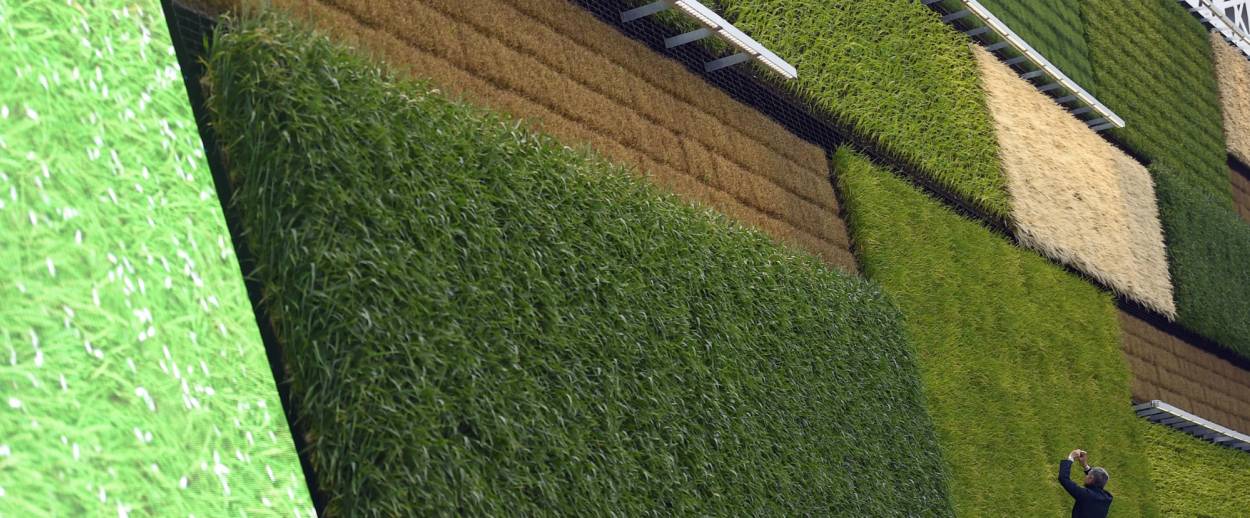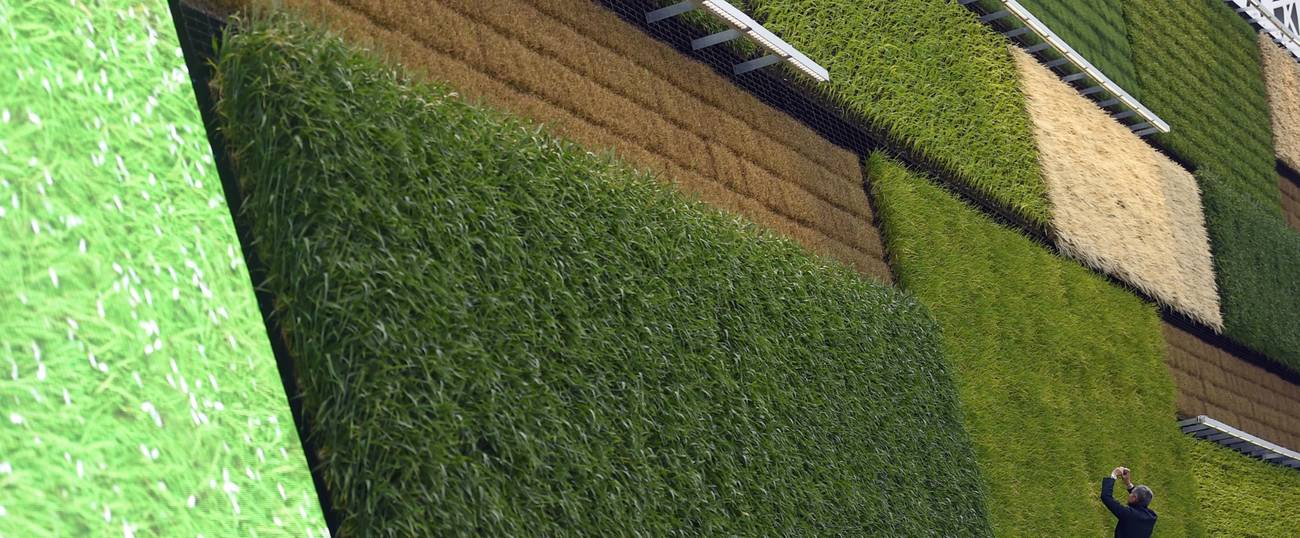Israel Touts Agricultural Innovations at World’s Fair in Milan
A dispatch from Italy on Israel National Day




Whether they are processed in a topping sauce and spread over pizza or pasta, or sliced raw in a fresh Caprese salad, pomodori (tomatoes) are undoubtedly among the chief symbols of Italian cuisine. In fact, tomatoes were imported to Europe from the Americas in the 16th century. However, the most beloved variety of tomato—pomodori ciliegini (cherry tomatoes)—are an Israeli invention.
The story of cherry tomatoes, which received the PGI (protected geographical indication) from the European Union in 2003, is among those narrated in the exhibit of the Israeli Pavilion at the 2015 Milan World Expo. I attended on Thursday, June 25, which was Israel National Day. Over 140 countries joined the global showcase; very few, however, can claim the merit of offering such an important contribution to the expo’s core theme, as Israel.
The main theme of the Universal Expo, which runs from May 1 to October 31, is “Feeding the Planet. Energy for Life.” There are over 50 pavilions at the event, including thematic areas and clusters, alongside dozens of opportunities to eat and experience flavors from all over the world. Organizers expect 20 million visitors over the course of six months, with thousands coming every day.
Walking on the Cardo and the Decumano, the main two streets crossing the site, were Italian school children, international tourists, young volunteers, families and senior citizens. The atmosphere was joyous, especially at the Israel pavilion, where visitors were greeted by a colorful and animated all-day-long street party: Jugglers, dancers and acrobats wearing white and blue suits, moving in time with the music of Sheketak, and the ensemble Circle of Drummers and Horns who invited children and adults alike to join them in their performance.
The Israeli Pavilion, called “Fields of Tomorrow,” is located at the very center, only a few meters away from Palazzo Italia. Designed by architect David Knafo, it features an iconic greenery wall that’s 70 meters long and 12 meters high, upon which plants grow and change with the passing of the seasons. Inside the pavilion, visitors are guided through the exhibition by Israeli actress Moran Atias who appears on screen. They are also met by 3-D movies, multi-directional effects, LED lights, and other virtual installations that showcase the successes of the Israeli agri-tech industry, and the nationwide dream of turning desert into fields and forests. (Israel is apparently the only country in the world whose number of trees increased in the last century, and David Ben Gurion’s dream of making the desert blossom continues to inspire the country.)
Among the featured innovations is the Israeli-invented drip irrigation system, and those that are currently being employed to improve the agriculture industries in China and Australia. Also featured is the partnership between Italy and Israel in order to help farmers in Senegal. The close relationship between Italy and Israel was among the topics emphasized by the Israeli deputy minister of Foreign Affairs Tzipi Hotovely, who inaugurated Israel National Day together with Bruno Antonio Pasquino, the Expo’s general commissioner.
“It is not by chance that we are neighbors here at Expo,” Hotovely said. “Our countries have a lot to share. Our cooperation benefits millions of people all over the world. As a fan of pizza, I must say that there is no better place than Italy to start feeding the planet.”
As the timed passed, the drummers at the Israeli pavilion were replaced by the powerful voice of singer Ester Rada, who captured the audience with her melodies ranging from soul to Israeli folk. And when nightfall came, a DJ set party began, to make sure that the visitors of Milan’s World’s Fair, didn’t walk away without experiencing a taste of Tel Aviv, and reminder that Israel is not only desert, agriculture and forests; it also has a lively and young way of life.
Rossella Tercatin is an Italian journalist. Follow her on Twitter @RossTercatin.